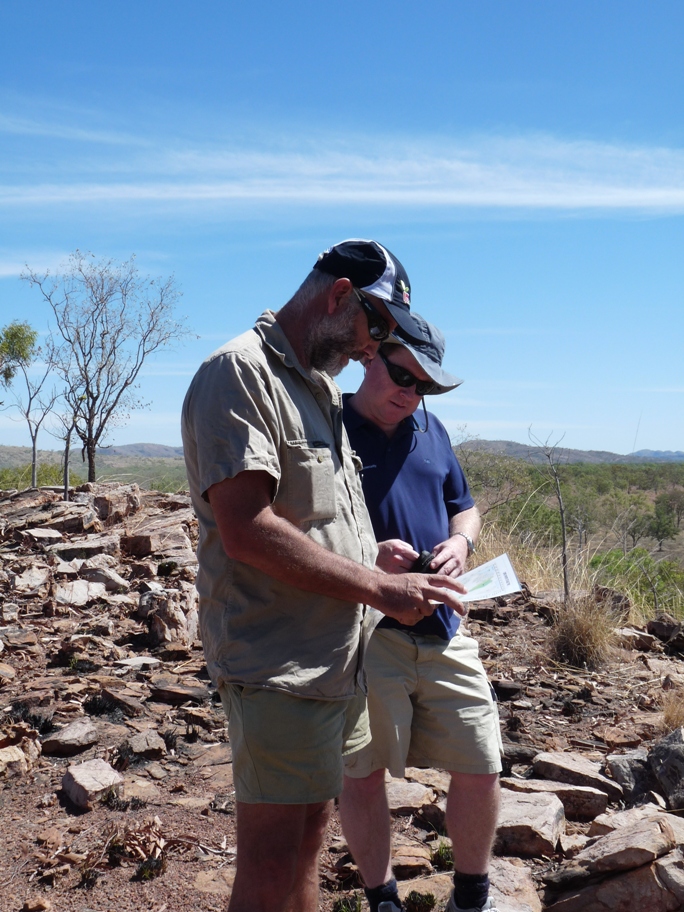You are here: Home > Farmers dedicated to plant biosecurity
Farmers dedicated to plant biosecurity
 On 21 September, Kununarra producer Lachlan Dobson was announced as the Biosecurity Farmer of the Year Award in the plant category at the inaugural Farming Ahead conference in Sydney.
On 21 September, Kununarra producer Lachlan Dobson was announced as the Biosecurity Farmer of the Year Award in the plant category at the inaugural Farming Ahead conference in Sydney.This award was supported by Plant Health Australia (PHA) and provides recognition for producers who implement sound biosecurity practices, inspire other farmers and encourage investment in Australian agriculture.
Lachlan manages the quality assurance and farming processes from produce grown from 120,000 mango trees and 80,000 red flesh grapefruit trees in the Kimberley’s Ord River Irrigation Area (ORIA). He has been involved with biosecurity in the ORIA since the 1998 outbreak of Panama disease in the Darwin banana growing area. He was involved in the development of the Western Australian Banana Industry Biosecurity Plan and also the OrdGuard regional biosecurity plan (the first of its type in Australia and the world).
For our overseas readers, Kununurra is the heart of Western Australia’s magnificent Kimberley region. Founded as part of the Ord River Irrigation Scheme, the town was established in 1963. Currently through this scheme, over 16,000 hectares are irrigated with plans to expand the growing area significantly. Being remotely located at the top of Western Australia, the Ord River Irrigation Area (ORIA) has a privileged biosecurity status and one that local growers want to maintain. Because of the long distances to markets and the associated supply chain costs, growers in the region rely on this status. To lose it, would place a huge financial burden on agricultural businesses in the area, making some of them not viable.
Lachlan is an advocate for taking responsibility for your own biosecurity practices. He believes biosecurity starts on your own farm and growers shouldn’t rely on authorities to implement biosecurity procedures. He wants to share the message that biosecurity can be as simple as locking the farm gates and putting up appropriate signage. He calls this the ‘stepladder’ approach. For example, to reduce biosecurity risks, if the gate is at the back of the property, it’s as simple as placing a padlock on the gate and a sign with contact details. He says, people will get the message.
As part of our Education and Training Program, PhD candidates are required to have both an academic and an industry supervisor. Access to industry experience enables the students to provide industry context to their research and relate it to real life application. Lachlan is the first non-academic supervisor of a PhD project appointed by Charles Darwin University in partnership with the CRCNPB. Lachlan is supervising Mr Paul Royce who has almost completed his theses investigating communication, education and awareness of biosecurity issues within ORIA.
Lachlan also collaborates with Ms Rebecca Zappia on her PhD project which is determining what plant pathogens exist in the irrigation channels of the Ord River region and how their potential movement could impact on biosecurity in the region.
Lachlan was up against some pretty tough competition which is testament to growers who recognise biosecurity as a critical component of their farming practices.
Angus Woods from Woods Pastoral is also dedicated to maintaining good biosecurity practices on his farming component of the larger, Australian agribusiness company, The Woods Group. Woods Pastoral is comprised of four key farms located in the highly productive and premium grain growing region of southern Queensland, just 45km north of Goondiwindi. Angus specialises in the production of cereal and pulse crops into high value markets such as seed for sowing, containerised exports and stock feed. The main crops grown are wheat, sorghum, chickpeas and barley.
“Having a large operation spread across the four properties means we often share machinery and use quite a few different contractors when we plant and harvest the crops,” says Mr Woods.
“We recognised that the size of the enterprise could potentially threaten its biosecurity, via the contamination of seeds and the introduction of pests and diseases on equipment for example.”
In order to safeguard his properties from pests and diseases, Mr Woods developed and implemented his own biosecurity initiative – a Full Traceability and Quality Assurance (FTQA) System.
The other finalist in this category were Peter and Sandra Young who own Birdwood Nursery Fruit Trees, a production nursery situated on 60 acres in Woombye, Queensland. The nursery was initially purpose built by Peter and Sandra to produce avocado trees tested free from root rot disease (Phytophthora cinnamomi).
Birdwood Nursery started operations during 1978, when Peter identified a need across the horticultural industries for high-quality, disease-free fruit trees. Peter and Sandra commenced growing all tree stock under the Avocado Nursery Voluntary Accreditation Scheme (ANVAS), in which they were foundation members. The couple has since attained accreditation from the Nursery Industry Accreditation Scheme Australia and EcoHort Certification. During 2009, Peter and Sandra introduced biocontrol agents to the nursery to augment their integrated pest management system.
The CRC congratulates all finalists on being recognised for their commitment to plant biosecurity.
Image caption: Lachlan Dobson shows CRC CEO Dr Simon McKirdy the planned expansion area for the Ord River Irrigation Area.

